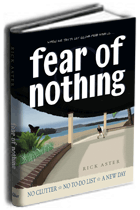The check I deposited this morning is my largest paycheck ever. How quickly can I make it disappear?
That was the challenge I set for myself weeks ago, as soon as I realized I would be taking this check to the bank.
Burning through an entire paycheck probably doesn’t sound like much of a challenge. I have done it myself. As an economist I am fully aware of the way many consumers, either in their minds or with credit cards, may spend an entire paycheck before they even receive it.
This is different, though.
- This is a quarterly paycheck. That makes it six and a half times the size of the more usual biweekly paycheck. Never mind all the machinations of how I get paid for my current temporary job. Just imagine what a software engineer earns for thirteen weeks of work, all falling into one bank deposit.
- I won’t be spending much time shopping. No trips to the mall, probably not even a visit to Best Buy. I am still the same person who went on a month-long shopping moratorium a year ago with the goal of spending less time shopping.
- I want to spend mindfully, not stocking up for future years, not adding clutter to the house, not buying things I won’t have time to use, not buying anything that won’t make a noticeable difference in my life, not spending more than I need to for the things I am buying.
- I already have a 19-month supply of food — more than I reasonably should have.
- I have more clothing than I can use. When I buy clothing, I have to throw something good away to make room for it.
- I don’t think I can make a case for buying any more furniture. I would need a larger house.
- I don’t have any debt payments to make. I paid off the mortgage a couple of years ago.
- I’ll be spending all of this money on myself.
- During the austerity budget era of a decade ago, I learned new ways to reduce my already low cost of living. Those habits are still with me.
It is the last few items that begin to explain why I have taken on the challenge of a spending spree. I want to break free of the austerity-budget mentality. If I can spend money on things that save me time, make my life go more smoothly, bring me peace of mind, improve my health, and help me sleep better, I will be not just happier, but also more productive — meaning it will actually boost my future income. It’s a prudent investment when viewed in this way. But for me to make that investment, I have to get out of the mentality that has me postponing all major spending as long as I can. That austerity-budget mentality kept me out of trouble for a decade, but it doesn’t represent the right balance now.
If you want to persuade someone that things have changed, you might need to show them something new and different. The same principle applies when the person you are seeking to persuade is yourself. If I spend a large sum of money all at once, and not to buy a car, I’ll be experiencing myself with a different relationship to money. Surely this will be enough to interrupt some of my patterns of thinking. Of course, I’ll find out how well this works.
It takes time to spend money. I started two weeks early, getting my car repaired. One of my goals for the summer is a weekend day at the beach, and I wanted to be sure my car was ready for the trip. Then last weekend I placed a flurry of online orders. The first shipments arrived on my doorstep yesterday. During the week I visited four stores. But all this advance spending on books, music, food, clothing, electronics, and auto parts amounted to only a few hundred dollars. I had made a short list of other things to buy, a wish list if you will, but many of the items on it had lost their luster since I wrote them down. If I bought them, I don’t think I would feel the difference in my life. And even if I did buy everything on the list, I won’t be spending a quarterly paycheck on the kind of material goods that fit in a shopping bag or a padded mailer — the money doesn’t add up that quickly when you are buying things one at a time.
I made charitable and political donations, but those too were small, and anyway, my goal is mainly to spend money on myself. There were other routine expenditures — some things for my car, phone bills, the monthly electric bill. A few years ago, these were the expenses I had to plan carefully. Today, they were a drop in the bucket. Adding up everything so far, I had spent 9 percent of the paycheck.
It seems like I am not getting anywhere, but an accident of the calendar takes me a step forward. My biggest expenditure every year, a real estate tax, happens to fall around this time of year. I wrote that check. That takes away 16 percent of my paycheck.
That tax bill comes only once a year. There is no way around it — to meet my spending goal, I will need big-ticket items. So here are the first two:
- An online course. I will gain new career skills. 4 percent.
- Personal coaching. Help with identifying and correcting errors in my thinking. 4 percent.
Now we’re getting somewhere. Adding up everything through today, that’s almost a third of the paycheck spent. Services like these will boost my future opportunities and productivity, and they won’t add clutter to my house. But there’s an obvious catch. Besides the price tag, this kind of spending comes with a substantial time investment. I have a busy work schedule already, and I’ve just committed the equivalent of two weeks of free time. That’s on top of the one week of free time that it will take to read the books I just bought. The same limitations apply to the simple home improvements I would like to make — they too take more time than money. I already have the materials for five projects that are just waiting for me to have time to do them. I can’t add more items like this — at least not right away.
I am determined to spend the whole sum of money that I took to the bank today, but based on my results so far, it may not happen as quickly as I had imagined. For now, I will get started with the online course I purchased. I will come back next weekend with more ideas for spending.
To meet my goal of making the paycheck disappear, I transferred all the money that was left to my investment account. I know, that doesn’t count as spending, but the movement of money helps illustrate the point that I am trying to make — that my relationship to money has changed.



No comments:
Post a Comment